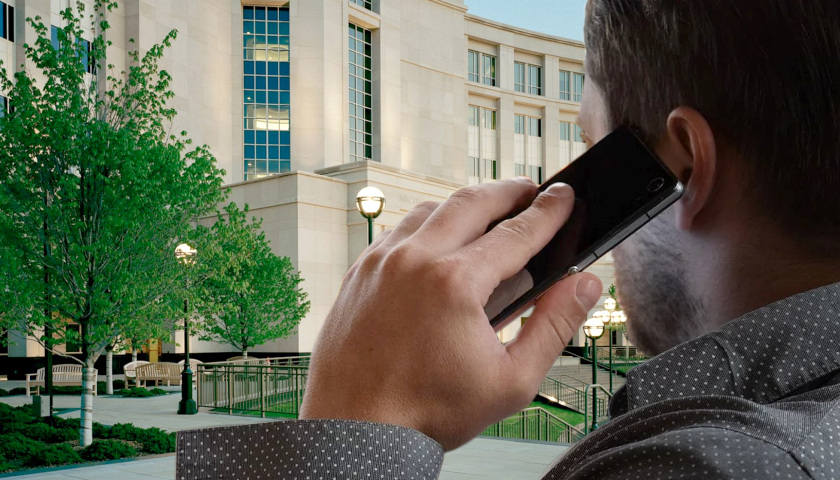by Scott McClallen
The Michigan Supreme Court will allow cellphones, tablets and laptops in courtrooms across the state starting May 1.
A 6-1 ruling Wednesday amends Michigan Court Rule 8.115 that left the decision up to each court’s chief judge.
MSC Communications Director John Nevin said in a press release that the change improves court access and was based on national models used in other states.
Members of the public will be able to photograph court records, as long as they don’t mark the documents or unreasonably interfere with the clerk’s office operations, as well as take notes, use the Internet, and receive and send text messages.
The rule prohibits taking photographs and audio or video recording in court unless granted permission by the court’s presiding judge.
Photographing or recording jurors is prohibited, as well as communicating with any courtroom participants.
Photographing and recording individuals outside of the courtroom but within the building is prohibited unless that individual gives consent.
The rule change doesn’t affect the media’s recording of court proceedings with the judge’s permission, according to AO 1989-1.
Judges can terminate electronic device use inside the courtroom that is “disruptive or distracting” to a court or acts against “the administration of justice,” and judges and court administrators have similar authority within the court building.
Members of the public must silence electronic devices and are banned from making or receiving calls, or using the device “for any other audible function” unless given court permission.
Violating the rule could lead to the device’s confiscation for that day by the presiding judge and may be punishable by sanctions determined by the court, including contempt of court.
Michigan Supreme Court Justice Stephan Markman dissented, arguing that local courts should be allowed to set their own policies.
Markman said the rule would allow people “to casually browse the Internet, to text, or to play games,” which distracts from the solemn nature of court.
There’s no means to prevent photographs from being taken, Markman wrote, and “allowing texting from within the courtroom also risks the potential compromise of trial testimony.”
Other justices disagreed, with Chief Justice Bridget Mary McCormack arguing that judges will ensure disruptive behavior doesn’t take place within their courtroom.
“The comments we received and testimony we heard that cell phone access was essential to self-represented litigants was compelling,” McCormack stated upon the rule release. “We appreciate the willingness of local courts to implement this reform that will help make sure the doors to our courts are open to all.”
Nila Bala, associate director of R Street’s Criminal Justice and Civil Liberties Program, previously told The Center Square this was an “access to justice” issue because copying court documents currently cost $1 per page.
“So many litigants in our court system are indigent, are poor, which is why they qualify for a public defender,” Bala said.
The former Baltimore public defender said the cell phone restrictions disproportionately impacted people who use public transportation and can’t store a phone in their car, which hinders attorney-client communication.
“It makes it a lot easier to be able to contact your client on-the-go, and coordinate with them if they’re having transportation or childcare issues, and to update the court about what’s happening and their whereabouts,” Bala said.
The rule change followed public meetings and testimony on November 20.
– – –
Scott McClallen is a staff writer covering Michigan and Minnesota for The Center Square.
Photo “Michigan Supreme Court” by the Michigan Supreme Court.





